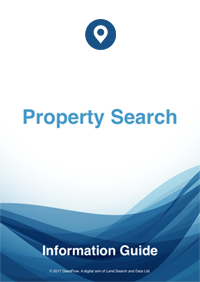Right of Way Easement of Necessity
Contents
Article Summary
A private right of way is an easement, i.e. the right to cross, enter or do something on part of an adjoining land owner's property. Easements, or rights of way, are usually created by Deed, i.e. they are created expressly. They can also be created by implication, by necessity, by prior use, by prescription or by estoppel. This article focuses on rights of way created by necessity, or, as they are usually termed, easements of necessity.
Private Rights of Way
All private rights of way are easements. Although easements are usually created by Deed when a parcel of land is being divided and part sold or let to another person, they can also arise in other ways, e.g. they may be implied by law, as when a person sells part of his property and neglects to create an easement to allow himself access to the drive leading to his own property. It will be assumed that he meant to do so, but did not, i.e. the easement will be implied by law. (See article - Implied Rights of Way). Other examples include leases arising by prior use, easements of necessity, easements arising by prescription and easements created by estoppel. In this article I will focus on easements created by necessity.
The Four Necessities
For a private right of way to exist there are 4 legal requirements:
- The properties must adjoin each other.
- They must be owned by different persons.
- The easement must benefit one property and burden the other. The legal term for this is that there must be a dominant tenement (the property having the benefit of the right of way) and a servient tenement (the property over which the right of way is exercised).
- The easement must be capable of being created by Deed.
Easements of Necessity
This is simply a term to describe a right of way that arises by implication, from necessity. An example of such would be where X owns a farm with a copse used to shelter sheep near to the centre of his farm. He sells the woodland to Y, who later discovers the copse is land-locked, i.e. he and his sheep cannot reach it without passing over X's farm.
An easement of necessity is a particular type of easement that arises by implication. For such an easement to be implied the easement must be required to use the land, i.e. not simply to enjoy the use of the land, but to be able to use the land at all. If the land can be accessed in some other way, then the easement will not arise.
Easements of Necessity Cease following a Court Order
If the court make an order allowing an easement then there is no longer any need for an easement of necessity, which will thereupon cease to exist.
Title Register
Where the land is registered, an express easement must be registered to have legal effect. If the easement is not registered but was created before the Land Registration Act 2002, it will bind subsequent purchasers as an overriding interest. If the property is not registered it will be either a legal or an equitable easement. Legal easements bind "all the world"; equitable easements should be registered as a land charge at the Plymouth Land Registry.
Rights of Way Search
A Rights of Way Search will provide all the available registered documents to allow you to see if any easements have been created in favour of a dominant tenement, and these would be detailed in the A section of the Title Register included with the search, and illustrated in the Title Plan. They would also appear in the Title Register for the adjoining land (the servient tenement), in the C section, and again in its Title Plan. The Associated Documents for each property will provide further details of the easements and any covenants associated with them.
Rights of Way Search
The Rights of Way Search provides Land Registry documents detailing all private rights of way that affect the property having the benefit of and the property having the burden of the right of way, and also provides Environmental documents that detail public rights of way.
£139.95Boundary Search
The Boundary Dispute Search provides copies of all available Land Registry documents for the properties on each side of the boundary, together with details of common law presumptions that will apply where there is no evidence to the contrary.
£99.95Parking Space Disputes
Parking Dispute searches provide details of all registered documents that contain references to parking spaces, drives, etc, whether on street or off street
£64.95


